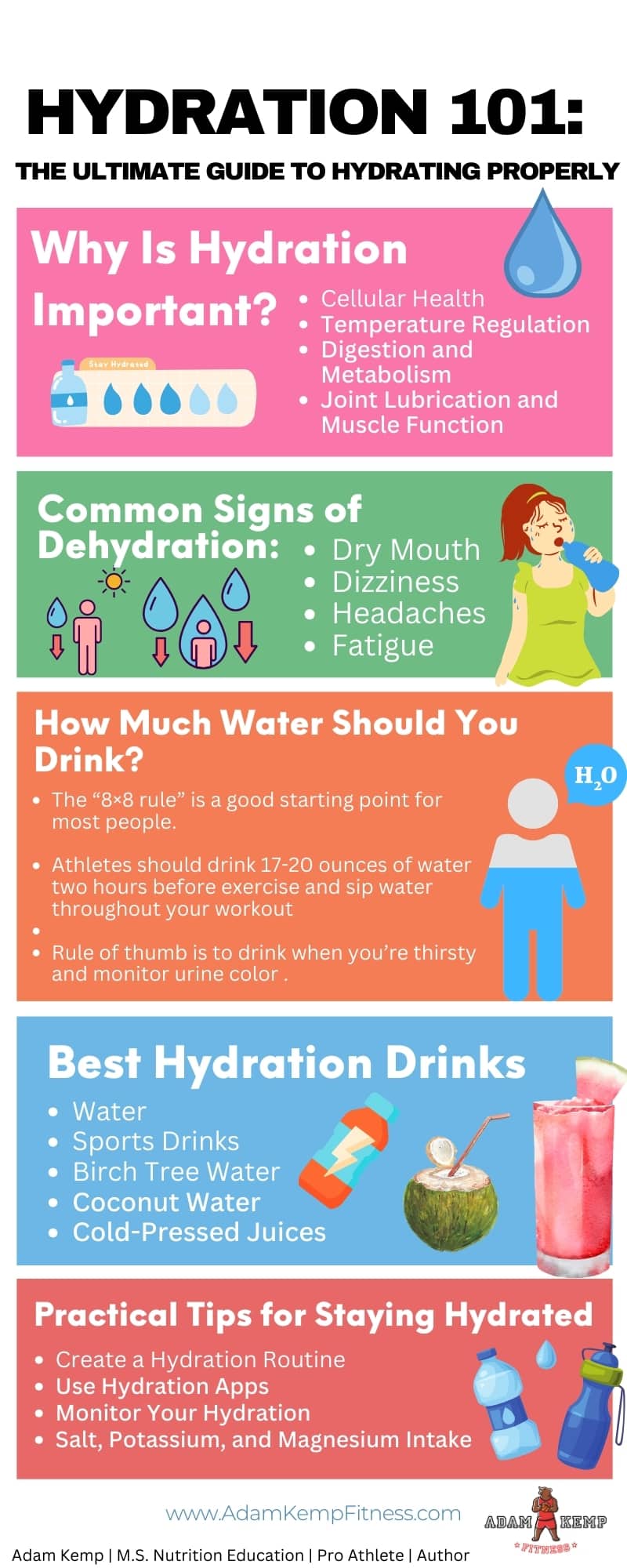What is Jet Lag and How to Get Over it Fast?
Jet lag is a common issue for travelers crossing multiple time zones, causing sleep disturbances, daytime fatigue, and cognitive impairment.
It occurs when the body’s internal circadian rhythm becomes misaligned with the external time at the destination.
While many people view jet lag as a minor inconvenience for athletes, business travelers, and frequent flyers, it can have serious consequences on performance, focus, and overall health.
As a professional basketball player for over a decade, I have firsthand experience dealing with the effects of jet lag, from long-haul flights between Europe and America to frequent small time zone changes within Europe and Asia.
The physical and mental toll of disrupted sleep cycles and fatigue can be immense, making it especially difficult to stay healthy while traveling.
One of the worst injuries of my career occurred when I was still severely jet-lagged. I had just arrived in Europe from America, and despite still adjusting to the time change, I was forced to play a high-intensity game only four days after landing.
My body wasn’t ready—I was sluggish, my reaction time was off, and I felt completely out of sync.
During that game, I suffered an avulsion fracture in my right ankle, an injury I know could have been avoided if my team had been more understanding of how long it takes to recover from jet lag.
This was actually the play I got injured on:
However, throughout my years of experience traveling across multiple continents and managing the effects of jet lag, I’ve developed effective strategies that can help anyone get over jet lag faster.
Whether you’re a frequent traveler, an athlete needing to perform at peak levels, or someone preparing for a big international trip, understanding how to reset your body’s clock efficiently can make all the difference.
What is Jet Lag?
Jet lag, also known as flight dysrhythmia, is a temporary sleep disorder that occurs when rapid travel across multiple time zones disrupts the body’s internal clock (Sack, 2009).
This misalignment leads to symptoms such as fatigue, insomnia, irritability, poor concentration, and gastrointestinal discomfort.
The more time zones you cross, the more severe jet lag can be, particularly when traveling eastward, as it shortens the day, making it harder for the body to adjust.
How Does Jet Lag Affect the Body?
Jet lag results from a disruption in the body’s circadian rhythm, the natural 24-hour cycle that regulates sleep, wakefulness, digestion, and hormone production.
The key factors influencing jet lag include:
- Circadian Rhythm Misalignment: The body’s internal clock takes time to sync with the local time at the destination.
- Melatonin Production: This hormone, secreted by the pineal gland, regulates sleep-wake cycles and is influenced by light exposure.
- Sleep Deprivation: Long-haul flights and uncomfortable travel conditions contribute to sleep loss.
- Dehydration & Fatigue: Airplane cabin conditions, including dry air and limited movement, can exacerbate jet lag symptoms.
How to Get Over Jet Lag Fast

Recovering from jet lag quickly requires a strategic approach that helps your body adjust to a new time zone as efficiently as possible.
By leveraging proven sleep optimization techniques, strategic light exposure, proper hydration, and nutritional support, you can minimize fatigue, reset your internal clock, and get back to feeling your best.
Here are the most effective, science-backed methods to overcome jet lag and accelerate your adjustment to a new time zone:
Adjust Your Sleep Schedule Before Traveling
One of the best ways to reduce the effects of jet lag is to gradually shift your sleep and wake times before your trip.
This allows your body to start adapting to the new time zone in advance, making the transition smoother.
- If traveling eastward: Try going to bed 30-60 minutes earlier each night for at least three days before departure. Since eastward travel shortens the day, this helps your body begin adjusting to an earlier bedtime.
- If traveling westward: Delay your bedtime by 30-60 minutes each night before your flight. Westward travel extends the day, and pushing back your sleep time will help you sync with the new schedule faster.
- Optimize your pre-travel routine: Avoid screens and artificial light at night, and use blackout curtains to reinforce the sleep schedule change. Additionally, start eating meals closer to your destination’s mealtimes to reinforce the shift.
Use Strategic Light Exposure
Light exposure is the most powerful external factor that regulates your circadian rhythm (Bin et al., 2019).
Properly timing your exposure to sunlight can significantly speed up your body’s adjustment to a new time zone.
- For eastward travel: Get morning sunlight exposure as soon as possible upon arrival. This helps shift your internal clock earlier and makes it easier to fall asleep at the right time.
- For westward travel: Spend more time in evening sunlight to delay your body clock and make it easier to stay awake later.
- Avoid bright light at night: Blue light from screens and artificial indoor lighting can suppress melatonin production, making it harder to sleep. Use blue-light-blocking glasses or dim lighting in the evening to help your body wind down.
- Consider using light therapy: If natural sunlight exposure isn’t possible, a light therapy lamp (10,000 lux) can help regulate your circadian rhythm more effectively.
Take Melatonin Supplements (If Necessary)
Melatonin is a hormone that regulates sleep-wake cycles, and taking a melatonin supplement can help realign your internal clock after travel.
Research suggests that 2-5 mg of melatonin taken 30-60 minutes before bedtime at your destination can reduce jet lag symptoms (Herxheimer & Petrie, 2002).
- When to take melatonin:
- For eastward travel, take melatonin in the evening for the first few nights after arrival to help you fall asleep earlier.
- For westward travel, melatonin is usually less necessary, but taking it at night can still help reinforce a new sleep schedule.
- Use melatonin cautiously: While it is effective, melatonin should not be used long-term. If you have underlying health conditions or take medications, consult a doctor before use.
Last update on 2025-07-14 / This article includes affiliate links/Images via Amazon Product Advertising API. I may earn commissions on purchases made through these links.
Stay Hydrated
Dehydration exacerbates jet lag symptoms such as fatigue, headaches, and sluggishness.
Airplane cabin air is extremely dry, leading to fluid loss that can worsen your condition.
- Drink plenty of water before, during, and after your flight. Aim for at least 8-10 ounces of water per hour during the flight.
- Avoid alcohol and caffeine, which contribute to dehydration and disrupt sleep patterns. While caffeine can help with alertness after arrival, avoid it at least 6 hours before bedtime.
- Replenish electrolytes if needed by drinking coconut water, electrolyte tablets, or sports drinks to maintain hydration.

Optimize Your Sleep Environment
Creating the ideal sleep setting can make a significant difference in how well you recover from jet lag.
Your body is already struggling to adjust, so giving it the best conditions is crucial for better sleep after traveling.
- Use blackout curtains or an eye mask to block out unwanted light, especially if you’re arriving in a time zone where the sun rises earlier or later than you’re used to.
- Maintain a cool room temperature of around 65°F (18°C), which is optimal for sleep.
- Minimize noise disruptions with earplugs or a white noise machine.
- Stick to a bedtime routine—take a warm shower, do some light stretching, and avoid screens an hour before sleep.
Eat at the Right Times
Your body’s circadian rhythm is also influenced by meal timing. Eating according to your destination’s local schedule can help your digestive system and energy levels adjust more quickly.
- Eat a protein-rich breakfast to promote wakefulness and help reset your body clock.
- Consume complex carbohydrates at dinner to encourage melatonin production and help with sleep.
- Avoid heavy meals before bedtime, as digestion can interfere with sleep quality.
- Consider intermittent fasting before and during travel, which can help your body reset faster upon arrival.
Move and Exercise
There are a lot of good ways to workout while traveling, and physical activity plays a crucial role in helping your body adjust to a new time zone. Even light exercise can improve circulation, boost energy levels, and reduce feelings of sluggishness.
- Walk around during long flights to prevent stiffness and reduce the risk of blood clots.
- Do light stretching, mobility exercises, or foam rolling after landing to ease muscle tightness from prolonged sitting.
- Engage in moderate exercise outdoors to combine movement with natural light exposure, which can accelerate circadian adaptation. Try taking a fasted walk in the morning to explore your new location, accelerate circadian adaptation, and get your body moving!
Tip: Avoid intense workouts close to bedtime, as they can elevate heart rate and make it harder to fall asleep.
Take Short Power Naps (But Keep Them Short)
Taking a nap can be a useful tool for fighting off jet lag, but only if done correctly. Long naps can make adjusting to the new time zone even harder.
- Use a caffeine nap if needed—drink a small cup of coffee right before a short nap, so the caffeine kicks in as you wake up, helping you feel more alert.
- Limit naps to 20-30 minutes to avoid grogginess and further disruption to your sleep schedule.
- Avoid napping too late in the day, as this can interfere with nighttime sleep.
This website does not provide medical advice. This website site does contain affiliate links, and purchases may earn a commission.
Read my Medical Disclaimer, Review Disclaimer, and Publishing Policies for more details. Use of this site indicates acceptance of these terms.




